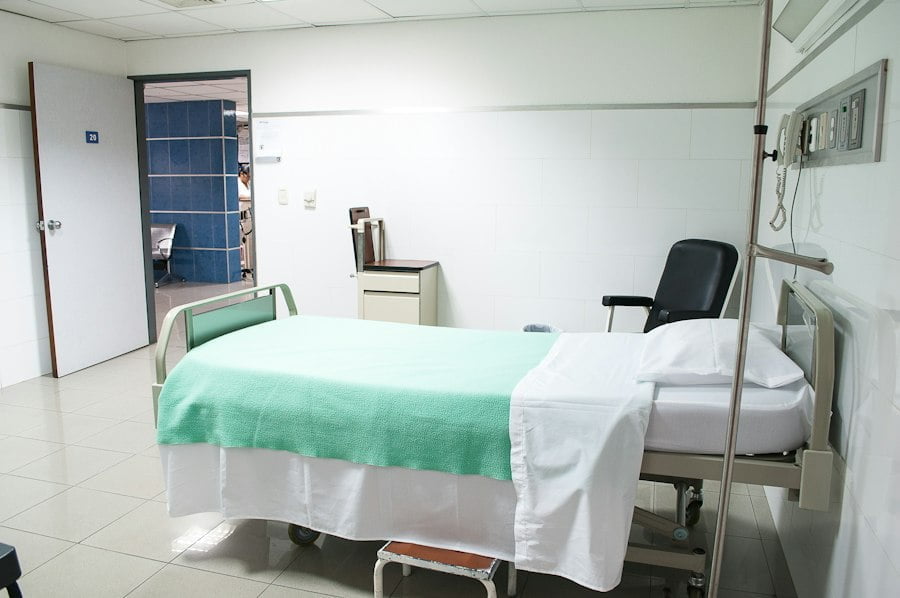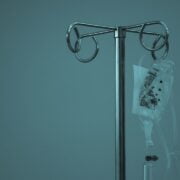
Prioritizing Physical Health: The Key to Cancer Prevention
Physical health is a crucial aspect of overall well-being. It not only affects our day-to-day functioning but also plays a significant role in preventing various diseases, including cancer. Prioritizing physical health is essential for maintaining a strong immune system, reducing inflammation, and promoting healthy cell growth. By adopting healthy habits such as eating a balanced diet, engaging in regular exercise, maintaining a healthy weight, avoiding harmful substances, getting enough sleep, managing stress, and undergoing regular check-ups and screenings, individuals can significantly reduce their risk of developing cancer.
Key Takeaways
- Prioritizing physical health is important for preventing cancer
- Physical health includes various components that affect cancer risk
- A balanced diet and regular exercise can prevent cancer
- Maintaining a healthy weight and avoiding harmful substances are also important
- Getting enough sleep, managing stress, and regular check-ups can improve physical health and prevent cancer.
Understanding Physical Health
Physical health refers to the state of well-being that encompasses the body’s ability to function optimally. It involves various components such as cardiovascular fitness, muscular strength and endurance, flexibility, and body composition. When these components are in balance, individuals experience improved energy levels, better mental health, and reduced risk of chronic diseases.
Physical health plays a crucial role in preventing cancer by boosting the immune system and reducing inflammation. A strong immune system is better equipped to identify and eliminate cancer cells before they have a chance to grow and spread. Regular exercise and a healthy diet can help strengthen the immune system by promoting the production of immune cells and reducing chronic inflammation in the body.
Healthy Eating Habits
Maintaining a balanced diet is essential for promoting physical health and reducing the risk of cancer. A balanced diet includes a variety of fruits, vegetables, whole grains, lean proteins, and healthy fats. These foods provide essential nutrients such as vitamins, minerals, antioxidants, and fiber that support overall health.
Certain foods have been shown to have cancer-fighting properties. These include cruciferous vegetables like broccoli and cauliflower, berries rich in antioxidants, tomatoes containing lycopene, green tea with its polyphenols, and turmeric with its anti-inflammatory compound curcumin. Incorporating these foods into daily meals can help reduce the risk of cancer.
To incorporate healthy eating habits into a daily routine, individuals can start by planning meals in advance, making a grocery list that includes a variety of fruits and vegetables, and cooking meals at home using fresh ingredients. It is also important to limit the consumption of processed foods, sugary drinks, and red and processed meats, as these have been linked to an increased risk of cancer.
Regular Exercise
| Metrics | Definition |
|---|---|
| Frequency | The number of times per week or month that an individual engages in exercise. |
| Intensity | The level of effort or exertion put into an exercise, often measured by heart rate or perceived exertion. |
| Duration | The length of time an individual engages in exercise, often measured in minutes or hours. |
| Type | The specific form of exercise, such as cardio, strength training, or yoga. |
| Benefits | The positive effects of regular exercise on physical and mental health, including improved cardiovascular health, weight management, and reduced stress and anxiety. |
| Risks | The potential negative effects of exercise, such as injury or overtraining, if not done properly or with proper guidance. |
Regular exercise is not only beneficial for maintaining physical fitness but also plays a significant role in reducing the risk of cancer. Engaging in physical activity helps control weight, improves circulation, strengthens the immune system, and reduces inflammation.
Types of exercise that have been shown to reduce cancer risk include aerobic exercises such as brisk walking, jogging, swimming, and cycling. Strength training exercises that target major muscle groups are also beneficial. Aim for at least 150 minutes of moderate-intensity aerobic activity or 75 minutes of vigorous-intensity aerobic activity per week, along with strength training exercises two or more days a week.
Creating an exercise routine can be done by setting realistic goals, finding activities that are enjoyable, and gradually increasing the intensity and duration of workouts. It is important to listen to the body and rest when needed to prevent injuries.
Maintaining a Healthy Weight
Maintaining a healthy weight is crucial for reducing the risk of cancer. Excess weight, especially around the waistline, has been linked to an increased risk of various types of cancer, including breast, colorectal, pancreatic, and kidney cancer.
To achieve and maintain a healthy weight, individuals should focus on consuming a balanced diet and engaging in regular physical activity. It is important to aim for gradual weight loss if necessary and avoid crash diets or extreme measures that can be harmful to overall health.
Incorporating portion control, mindful eating practices, and regular exercise into daily routines can help achieve and maintain a healthy weight. It is also important to seek support from healthcare professionals or registered dietitians for personalized guidance and support.
Avoiding Harmful Substances

Certain substances have been linked to an increased risk of cancer and should be avoided as much as possible. These include tobacco, alcohol, processed meats, and excessive exposure to sunlight.
Quitting smoking is one of the most important steps individuals can take to reduce their risk of cancer. Smoking is a leading cause of various types of cancer, including lung, throat, mouth, and bladder cancer. It is never too late to quit smoking, and there are various resources available to help individuals quit successfully.
Limiting alcohol consumption is also important for reducing cancer risk. Alcohol has been linked to an increased risk of breast, liver, colorectal, and other types of cancer. It is recommended to limit alcohol intake to moderate levels, which means up to one drink per day for women and up to two drinks per day for men.
To avoid excessive exposure to harmful substances, individuals should also protect their skin from the sun by wearing sunscreen, protective clothing, and seeking shade when the sun is strongest. It is also important to limit the consumption of processed meats such as bacon, sausage, and hot dogs, as these have been classified as carcinogens by the World Health Organization.
Getting Enough Sleep
Getting enough sleep is crucial for maintaining physical health and reducing the risk of cancer. Lack of sleep has been linked to an increased risk of various health conditions, including obesity, diabetes, cardiovascular disease, and certain types of cancer.
During sleep, the body repairs damaged cells and tissues and regulates hormone levels. Chronic sleep deprivation can disrupt these processes and lead to imbalances in the body that increase the risk of cancer.
To improve sleep quality, individuals should establish a regular sleep schedule by going to bed and waking up at the same time each day. Creating a relaxing bedtime routine that includes activities such as reading or taking a warm bath can also promote better sleep. It is important to create a sleep-friendly environment by keeping the bedroom dark, quiet, and at a comfortable temperature.
Managing Stress
Stress can have a significant impact on physical health and increase the risk of cancer. Chronic stress can weaken the immune system, disrupt hormone levels, and promote inflammation in the body, all of which can contribute to the development of cancer.
Managing stress is crucial for maintaining physical health and reducing cancer risk. Techniques such as deep breathing exercises, meditation, yoga, and engaging in hobbies or activities that bring joy and relaxation can help reduce stress levels. It is also important to prioritize self-care by taking breaks, practicing self-compassion, and seeking support from loved ones or professionals when needed.
Regular Check-Ups and Screenings
Regular check-ups and screenings are essential for early detection and treatment of cancer. Many types of cancer can be detected at an early stage when they are more treatable and have a higher chance of cure.
Recommended cancer screenings vary depending on age, gender, and individual risk factors. Some common screenings include mammograms for breast cancer, Pap tests for cervical cancer, colonoscopies for colorectal cancer, and prostate-specific antigen (PSA) tests for prostate cancer. It is important to discuss screening recommendations with healthcare professionals to determine the appropriate schedule.
In addition to regular screenings, individuals should also be proactive in monitoring their own bodies for any changes or symptoms that may indicate cancer. It is important to seek medical attention if any concerning symptoms arise.
Prioritizing physical health is crucial for reducing the risk of cancer and promoting overall well-being. By adopting healthy habits such as maintaining a balanced diet, engaging in regular exercise, maintaining a healthy weight, avoiding harmful substances, getting enough sleep, managing stress, and undergoing regular check-ups and screenings, individuals can take proactive steps towards a healthier lifestyle. It is never too late to start making positive changes and every small step can make a significant difference in reducing cancer risk and improving overall health.
FAQs
What is physical health?
Physical health refers to the overall condition of the body and its ability to perform daily activities without experiencing fatigue, pain, or other health issues.
What is cancer prevention?
Cancer prevention refers to the actions taken to reduce the risk of developing cancer. This includes lifestyle changes, such as maintaining a healthy diet and exercise routine, as well as regular cancer screenings.
How does physical activity help prevent cancer?
Regular physical activity can help reduce the risk of developing certain types of cancer, such as breast, colon, and lung cancer. Exercise helps to maintain a healthy weight, boost the immune system, and reduce inflammation in the body, all of which can help prevent cancer.
What types of physical activity are recommended for cancer prevention?
The American Cancer Society recommends at least 150 minutes of moderate-intensity exercise or 75 minutes of vigorous-intensity exercise per week for cancer prevention. This can include activities such as brisk walking, cycling, swimming, or strength training.
What role does diet play in cancer prevention?
A healthy diet that is rich in fruits, vegetables, whole grains, and lean proteins can help reduce the risk of developing cancer. Certain foods, such as processed meats and sugary drinks, should be limited or avoided altogether.
What other lifestyle factors can help prevent cancer?
Other lifestyle factors that can help prevent cancer include avoiding tobacco products, limiting alcohol consumption, protecting the skin from sun damage, and getting regular cancer screenings.


















